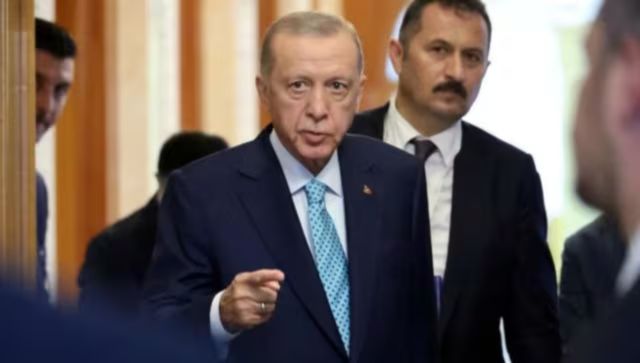Turkey is currently engaged in extensive discussions with its regional partners to find an alternative trade corridor plan to the recently proposed India-Middle East trade route at the G20 summit, according to a report by Financial Times. This initiative reflects Turkey’s efforts to reaffirm its historical significance as a crucial transit point for goods travelling from Asia to Europe. Ankara has expressed reservations about the proposed India-Middle East route, which would facilitate the transportation of goods from the Indian subcontinent through the United Arab Emirates, Saudi Arabia, Jordan, and Israel to reach European markets. This proposed corridor, supported by the United States and the European Union in their efforts to counter China’s expanding influence, would entirely bypass Turkey. President Recep Tayyip Erdoğan said after the G20 that “there can be no corridor without Turkey”, adding “the most appropriate route for trade from east to west must pass through Turkey”. Turkey’s Foreign Minister Hakan Fidan, has further underscored this scepticism, stating this week that “experts have raised doubts about whether the primary objective of the India-Middle East corridor was rationality and efficiency,” suggesting that there may be “more geostrategic considerations” in play. Talking to journalists who were accompanying him to the G20 Summit in New Delhi on 9 and 10 September, Erdogan said: “The most convenient line for traffic from east to west has to pass through Turkey.” As per Erdogan, the UAE President suggested that negotiations be completed within 60 days, and the foundations for the project be laid immediately. The economic corridor including shipping and railway links, will be a historic initiative for cooperation on connectivity and infrastructure. It involves India, UAE, Saudi Arabia, EU, France, Italy, Germany and the US. The shipping and railway lines will pass through the UAE, Saudi Arabia, Jordan and Israel, then reach Greece and Europe. The project, in its current form, however, bypasses Turkey. During the G20 Summit in New Delhi, a Memorandum of Understanding (MoU) on the corridor was signed by the European Union, India, Saudi Arabia, the UAE, the US and other G20 partners. One of the main objectives of the project is to cut shipping times by 40 per cent and save money on other costs, and fuel use. The ambitious scheme is estimated to require an investment of around $17bn, with projected annual returns of $4bn and the creation of a minimum of 100,000 jobs.
This proposed corridor, supported by the United States and the European Union in their efforts to counter China’s expanding influence, would entirely bypass Turkey.
Advertisement
End of Article


)

)
)
)
)
)
)
)
)



